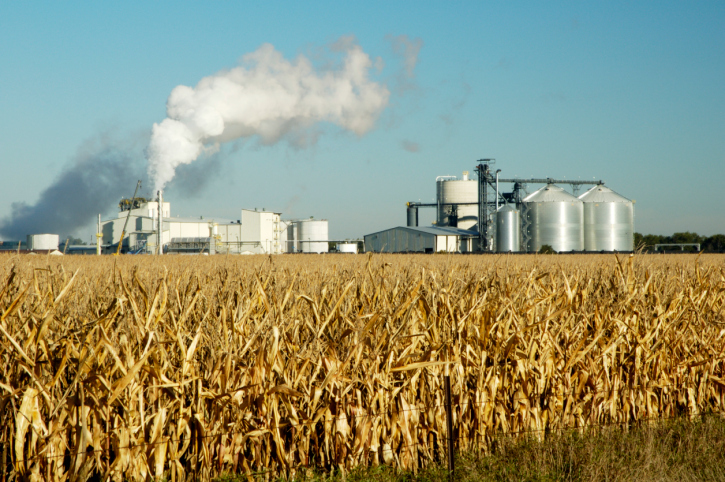Ethanol may be increasing air pollution in Brazil, scientists report in a peer-reviewed study. The study may have public policy implications in the United States, where federal law requires the transportation fuel mix to contain approximately 10 percent ethanol.
Pollution Dropped with More Gasoline
Sugar cane-based ethanol, which is heavily subsidized by the Brazilian government, powers many of the cars in Brazil. However, a recent study of Sao Paulo air conditions found ethanol-powered vehicles may be linked to the city’s smog problem. When higher ethanol prices induced drivers to switch from ethanol to gasoline, the city’s smog levels declined, scientists found.
Approximately 40 percent of automobiles in Sao Paolo run on either gasoline or government-subsidized ethanol. When the percentage of those flexible-fuel vehicles using solely gasoline rose from 14 percent to 76 percent, ozone pollution dropped by 20 percent, the researchers reported.
Mandates Prop Up U.S. Ethanol
The Energy Policy Act of 2005 established renewable fuel mandates in the United States, most of which are met by ethanol. The Energy Independence and Security Act of 2007 expanded the mandates. Forty percent of the U.S. corn crop is devoted to ethanol, comprising 10 percent of U.S. transportation fuel.
Environmentalists Question Ethanol
Environmental activist groups seized on the study to question the wisdom of the U.S. renewable fuel mandates.
“While it’s critical that we reduce our oil dependency, we certainly shouldn’t do it in a way that worsens air quality, water quality, and carbon pollution,” said Roland Hwang, director of the energy and transportation program at the Natural Resources Defense Council, in the Los Angeles Times.
In addition to the Nature Geoscience study on ethanol and air pollution in Sao Paulo, a National Academy of Sciences study found ethanol is not an effective means of reducing carbon dioxide emissions. Several additional studies report ethanol mandates encourage development of natural environments into marginal croplands and cause farmers to strain water resources.
Consequences of Government Interference
Energy and environment consultant H. Sterling Burnett said government has known all along that ethanol causes environmental problems and probably should not be used as a fuel source.
“Facts are facts, and the fact is every energy source has some benefits and some harmful effects. With sugarcane-based ethanol, the problem is increased levels of ozone,” said Burnett.
Kenneth Artz ([email protected]) writes from Dallas, Texas.
Internet Info:
“Reduction in local ozone levels in urban Sao Paulo due to a shift from ethanol to gasoline use,” Nature Geoscience, April 28, 2014, http://www.nature.com/ngeo/journal/v7/n6/full/ngeo2144.html





